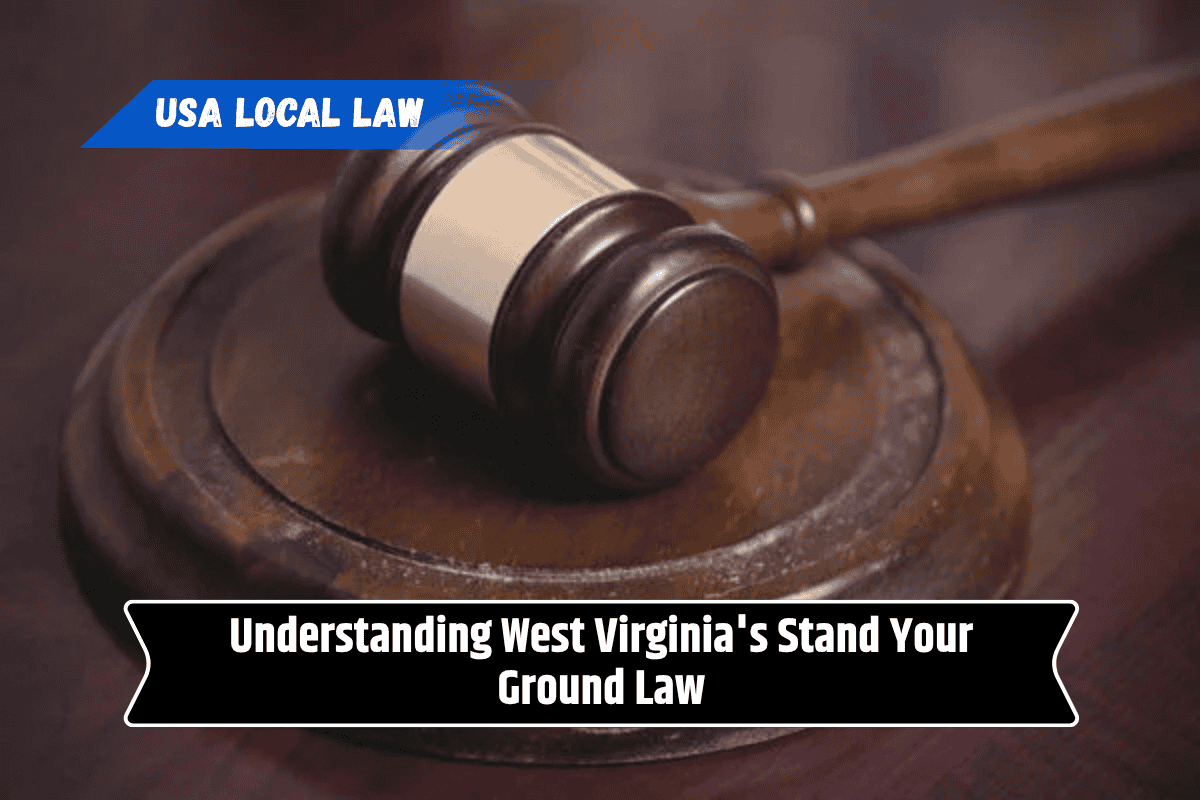West Virginia’s “Stand Your Ground” law has become a hot topic for many, especially when it comes to understanding how it impacts self-defense rights in the state.
If you’ve ever wondered about your legal rights when it comes to defending yourself, your family, or your property in West Virginia, this article will provide a clear explanation of what the law says and how it works.
What is the Stand Your Ground Law?
In simple terms, Stand Your Ground is a law that allows individuals to use force, including deadly force, to defend themselves if they feel threatened, without the duty to retreat. This means that, in certain situations, you don’t have to try to escape a dangerous situation before defending yourself.
The law applies if you are in a place where you have a legal right to be, such as your home, workplace, or even public spaces.
How Does West Virginia’s Stand Your Ground Law Work?
In West Virginia, the Stand Your Ground law allows you to defend yourself without needing to retreat first, even if you can safely leave the situation. However, there are some important conditions:
- Self-Defense: You can use force if you believe you are in danger of being killed or seriously injured.
- No Duty to Retreat: You are not required to retreat if you are threatened. In other states, you may need to try to leave or de-escalate the situation first. West Virginia’s law removes this duty.
- Legal Place: You must be in a place where you are legally allowed to be. For example, if you’re on someone else’s property without permission, the Stand Your Ground law does not apply.
Can You Use Deadly Force Under Stand Your Ground?
Yes, deadly force is allowed, but only if you believe there is an immediate threat to your life or safety. This means that the law doesn’t give you the right to use deadly force in any situation—it must be a serious threat where there is no reasonable alternative.
For instance, if someone is threatening you with a weapon and you believe that your life is at risk, you can use deadly force to protect yourself. However, using deadly force for minor threats or if you could have safely retreated is not protected by the law.
What Are the Limits of the Law?
While West Virginia’s Stand Your Ground law gives individuals more freedom to defend themselves, it still has limits:
- Aggressor Rule: If you are the person who started the conflict, you may not be able to claim Stand Your Ground protection.
- Excessive Force: The force you use to defend yourself must be reasonable. Using too much force in a situation where it’s not needed could result in criminal charges.
- Defense of Others: You can also use force to defend someone else, but again, the threat must be immediate, and the force must be reasonable.
What Happens After Using Force?
After using force in self-defense, you may be required to prove that your actions were justified. If you are charged with a crime after using force, it’s important to show that:
You were in a place where you had the legal right to be.
You genuinely felt that you were at risk of harm.
You did not provoke the situation.
In many cases, Stand Your Ground can serve as a legal defense in court, but it ultimately depends on the specifics of the case.
Why Was the Stand Your Ground Law Created?
The idea behind Stand Your Ground laws is to give people the right to protect themselves when faced with a serious threat. The law removes the requirement to retreat, making it clearer that individuals have the right to stand their ground and defend themselves when necessary, rather than risking harm by trying to flee.
West Virginia’s Stand Your Ground law gives people the right to defend themselves without needing to retreat in the face of a serious threat.
However, like any law, there are conditions and limitations to prevent misuse. It’s important to remember that self-defense should always be a last resort, and the force used must be reasonable and appropriate for the situation.
As with all laws, if you’re ever involved in a self-defense situation, it’s essential to seek legal advice. Understanding your rights and responsibilities can make a big difference in how your case is handled.
